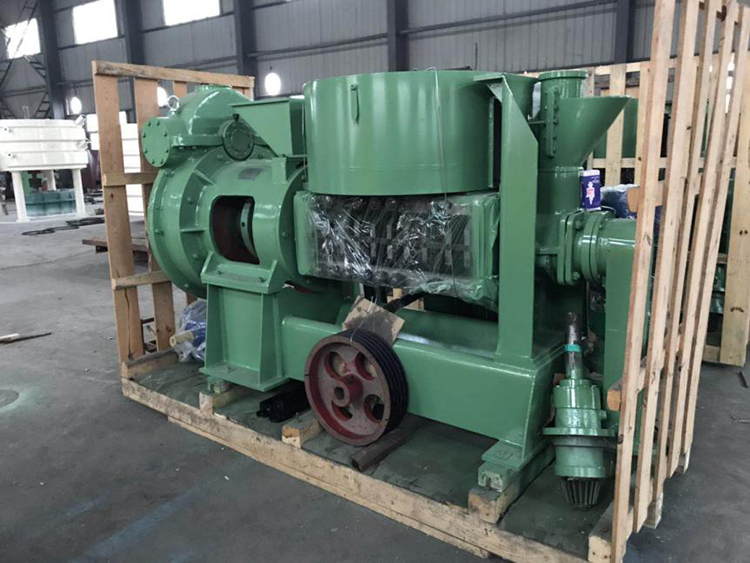Nov . 30, 2024 12:01 Back to list
Custom Cottonseed Oil Refining Plant for Tailored Oil Production Solutions
Custom Cottonseed Oil Refining Unit Enhancing Quality and Efficiency
Cottonseed oil, derived from the seeds of the cotton plant, is a versatile and widely used cooking oil known for its light flavor and high smoke point. However, the quality of cottonseed oil can vary significantly based on the refining process used. For industrial producers, investing in a custom cottonseed oil refining unit is crucial for optimizing quality, increasing efficiency, and ensuring compliance with health standards.
The Importance of Refining
Refining is the process of removing impurities and undesirable components from crude oil. In the case of cottonseed oil, this includes extracting fatty acids, phospholipids, pigments, and various contaminants that can affect flavor, stability, and safety. A custom refining unit designed specifically for cottonseed oil can enhance the overall process through tailored techniques that meet specific production needs.
Key Processes in Cottonseed Oil Refining
A typical cottonseed oil refining process includes several key steps
1. Degumming This initial step involves the removal of phospholipids and other hydrophilic substances from the oil. Degumming is essential as it prevents the oil from becoming cloudy and helps achieve a longer shelf life.
2. Neutralization The free fatty acids present in crude cottonseed oil are neutralized through an alkali treatment. This process not only improves the flavor but also reduces the acidity, thus enhancing the oil's stability during storage.
3. Bleaching In the bleaching stage, adsorbent materials such as activated clays are used to remove pigments, which help achieve the desired color quality of the final product. This step is vital in meeting consumer preferences and market standards.
4. Deodorization This final stage removes volatile compounds that can contribute to off-flavors. Deodorization typically involves steam distillation under vacuum, ensuring that the oil maintains its natural flavor while eliminating any undesirable scents.
custom cottonseed oil refining unit

Customization for Optimal Performance
A standard refining unit might not adequately address the unique challenges posed by cottonseed oil. Therefore, many producers opt for a custom cottonseed oil refining unit. Such units can be designed with adjustable capacities, specialized filtration systems, and advanced automation features. Custom solutions not only improve the efficiency of the refining process but also allow producers to tailor the oil's characteristics to meet specific market demands.
Advantages of a Custom Refining Unit
1. Quality Control Custom units enable better control over each refining stage, ensuring consistent oil quality. This precision is crucial in maintaining consumer trust and meeting regulatory requirements.
2. Cost Efficiency By optimizing the refining process, producers can reduce waste and energy consumption. A custom unit aligns the process with the unique needs of cottonseed oil, maximizing yields and minimizing operational costs.
3. Scalability As demand for cottonseed oil fluctuates, a custom refining unit can be designed for scalability, allowing producers to adjust production levels without significant downtime or reinvestment.
4. Sustainability Modern custom brewing units often incorporate energy-efficient systems that reduce the environmental impact of oil refining. This aligns with growing consumer demand for sustainable practices in food production.
Conclusion
A custom cottonseed oil refining unit is an invaluable investment for producers aiming to enhance product quality and operational efficiency. Through tailored refining processes, producers can achieve higher standards of purity and flavor while optimizing costs. As the demand for high-quality edible oils continues to grow, the importance of advanced refining technologies will be paramount in ensuring that producers meet consumer expectations and remain competitive in the market.
-
Top Food Oil Refined Unit Companies w/ GPT-4 Turbo Tech
NewsAug.01,2025
-
Premium Black Seed Oil Expeller - High Efficiency Cold Press Oil Machine
NewsJul.31,2025
-
Oil Processing Equipment - High-Efficiency Flaking Machine
NewsJul.25,2025
-
High-Efficiency Peanut Oil Refined Machine for Quality Oil Production Leading Exporters & Companies
NewsJul.08,2025
-
High Efficiency Sunflower Seed Oil Press – Leading Cooking Oil Press Machine Factories & Suppliers
NewsJul.08,2025
-
High-Efficiency Soybean Oil Press Machine – Leading Exporters & Reliable Companies
NewsJul.07,2025
